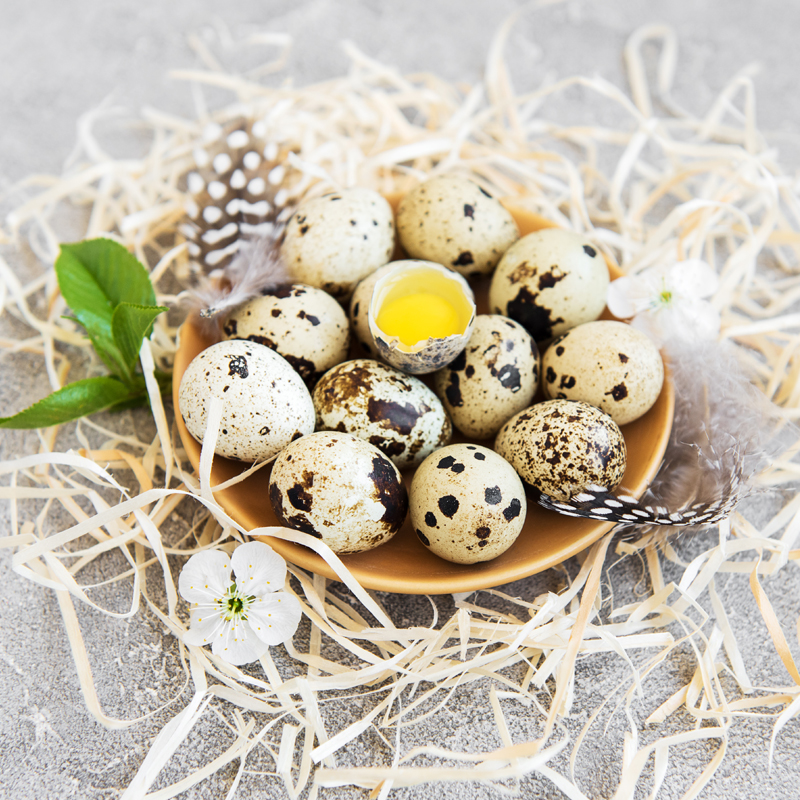
100 gr |
-- |
|
|---|---|---|
| Carbohydrate (gr) | 15.04 |
4928.47 |
| Protein (gr) | 3.59 |
1176.23 |
| Fat (gr) | 12.46 |
4083.43 |
| Fiber (gr) | 1.36 |
445.97 |
| Cholesterol (mg) | 14.64 |
4795.8 |
| Sodium (mg) | 325.27 |
106557.75 |
| Potassium (mg) | 392.16 |
128471.4 |
| Calcium (mg) | 78.15 |
25603.27 |
| Vitamin A (mg) | 46.04 |
15084.01 |
| Vitamin C (mg) | 6.16 |
2019.31 |
| Iron | 0.62 |
203.1 |
Quail eggs are small but packed with essential nutrients, making them a popular choice in many cuisines worldwide. These tiny eggs are rich in vitamins A and E, iron, phosphorus, potassium, and calcium. They provide a nutrient-dense alternative to regular chicken eggs while offering unique health benefits.
In terms of calories, five quail eggs roughly equal the calorie count of one regular chicken egg. This makes them an excellent option for those seeking variety in their diet without significantly altering their caloric intake.
The calories in quail eggs are 158 calories per 100 grams.
One important aspect to keep in mind is the cholesterol content of quail eggs. While they offer impressive nutritional value, they also contain a higher concentration of cholesterol compared to chicken eggs. This makes it essential to consume them in moderation, especially for individuals monitoring their cholesterol levels.
Quail eggs are versatile and can be prepared in various ways, including boiling, frying, or incorporating them into salads, appetizers, and gourmet dishes. Their delicate flavor and rich texture make them a favorite among food enthusiasts.
While quail eggs are a nutritional gem, their cholesterol content should not be overlooked. For individuals with dietary restrictions or health concerns, consulting a nutritionist is advisable before making them a regular part of your diet.